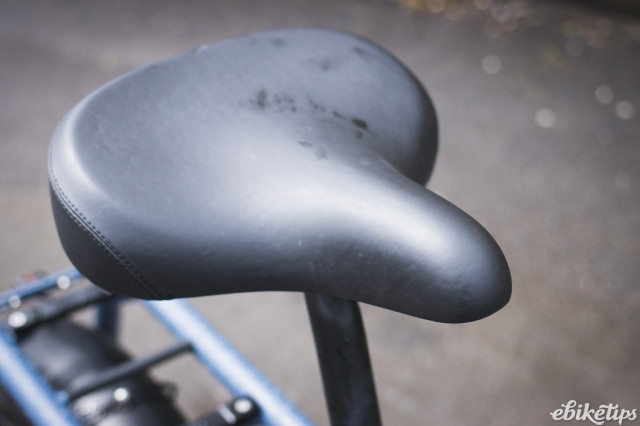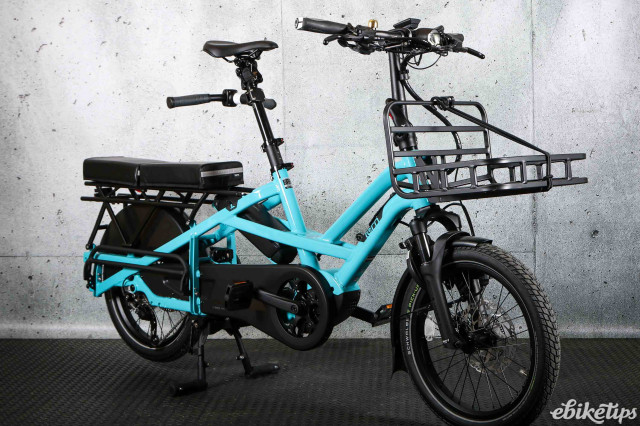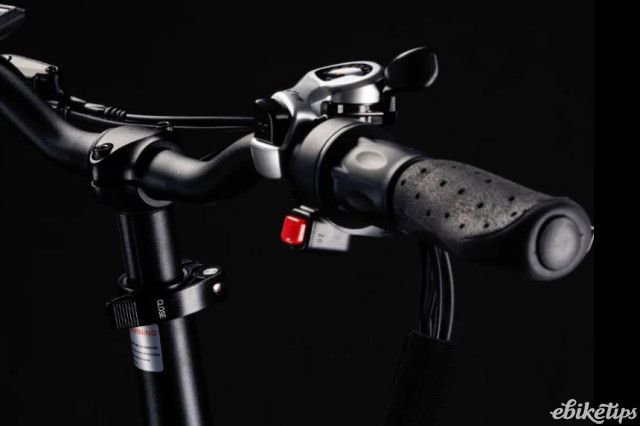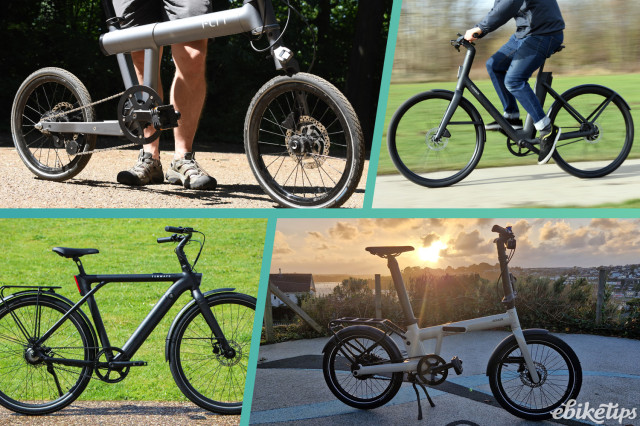Review: Benno RemiDemi 9D
Overview
- Solidly built
- High quality motor system
- Lots of luggage options
- Reasonably expensive
The Benno RemiDemi is a fun and versatile bike that’s just the kind of thing you need if you’re hankering after a cargo bike but you really don’t have the space for one. It’s not as versatile as Benno’s Boost or Tern’s GSD but it’s quite a bit cheaper than either and will offer enough carrying capacity for many people in a compact package.
“The RemiDemi breaks all the rules of how a bike is supposed to look and ride”, says Benno. “We gave it small wheels and fat, grippy tires for major maneuverability. A thick, sturdy frame with a convenient low step through. And an upright seating position atop a wide saddle that puts you in total control. The RemiDemi loves to play, but it can also put in heavy work with a powerful Bosch mid-drive electric motor, Shimano Sora 9-speed and hydraulic disc brakes, and available accessories that give you countless clever ways to carry a child or loads of cargo.”
This is a compact city bike with a low-step steel frame and fork and 20” wheels. Small-wheelers are becoming more popular as they offer most of the benefits of a larger-wheeled bike in a more compact package, which makes them easier to store. Smaller wheels can mean a harsher ride but the RemiDemi combats this by speccing enormous moto-style tyres to wide rims. The 4.25” tyres are excellent: they’re grippy on the tarmac and the huge air chamber does a better job of smoothing out the road surface than most of the suspension forks you find on city bikes. They’re big enough to cope with some fairly chunky off-road too if you’re that way inclined. The handling of the bike is very neutral and confident; they’ve just resurfaced the hill on my commute and I’ve been tearing down the pristine tarmac with every confidence in the steering and the braking. Around town you can lean the big moto tyres much farther than I’d ever be comfortable doing without them breaking away.
The steel frame is neat and stylish, with a low step-through that makes the bike easy to get on and off. The rear rack is integrated into the frame; the large-diameter tubes mean that you’ll need an adapter to fit a standard pannier, but you can also bolt on a lot of other stuff: a Yepp child seat, a cargo rack for a standard crate, or even an insulated box for deliveries. Anything that uses the RackTime standard should fit; the RemiDemi will even work with a Carver surfboard rack. There’s a front rack mount on the head tube too. The maximum rated capacity of the bike is 180kg, and that includes the 30kg of bike weight, so a 90kg rider like me could load the front and rear racks to their 20kg/30kg capacity and still have 10kg to spare. The maximum rider weight is 120kg.
The position is upright, with a short reach and a tall handlebar. Benno says that the height range for the bike is 155-185cm, but I’m 189cm and had no issues at all with the riding position. The double seatpost clamp requires an allen key to set the seat height and there's no option to swap to a quick release, so swapping between riders is a bit more involved than some other bikes, but the one-size frame does have plenty of scope for big and small riders.
Where the Benno Boost feels a bit longer and more purposeful the RemiDemi is certainly built for cruising, but it’s no slouch with its 65Nm Bosch Performance Line motor. With its steel frame and those huge tyres it’s definitely not a light bike, so it’s not one to choose if you’re regularly lifting your bike on your daily errands, but when you’re riding you really don’t notice the weight until the gradient nudges into double figures and the Bosch motor starts to labour a little bit more than it would in a lighter chassis. Even so, the RemiDemi had no problems with my benchmark climb (1.5km at 5% average with a 12% section), cruising up a couple of gears off the lowest cog with minimal effort from me.
The 30kg weight of the bike and the drag from the huge tyres will affect the range of the bike a bit; Benno’s range estimate is 40-135km but you’d have to be riding in some pretty optimal conditions to trouble the far end of that range. I was getting 4 laps of my 9km commute (with 150m of climbing) out of the bike’s 500Wh battery (the standard spec is 400Wh) which is what I’d expect from this motor on a fairly heavy bike. That doesn’t sound like much but my commute is a bit all-or-nothing; on flatter rides where the Tour and Eco modes come into play more I’d expect to double that, but around here where there’s not much actual flat I wouldn’t ever expect to get near to 100km on a charge.
This isn’t really a bike designed for long journeys anyway, although it’s comfortable enough for an hour or so in the saddle. You’re more likely to be considering a bike of this kind for day-to-day use about town, and it’s ideal for that. It’s very solidly built, with the design of the steel frame protecting the rear derailleur well so that it’s less likely to get knocked in the rough and tumble of city life. You get full mudguards as standard, and integrated lighting too. It’s worth noting at this point that out bike wasn’t standard spec as it’s a pre-production sample. As well as the more powerful battery, it has a Supernova lighting system instead of the Herrmans Front and Rear Lights that are standard, and a Shimano Deore rear mech instead of Shimano Sora. The lights are probably a rung or two above the standard ones but Deore and Sora are about the same level of componentry.
The bike has a single kickstand, which is fine for town duties and lighter loads. If you’re planning to carry cargo or kids on a regular basis you’ll want to upgrade to a double kickstand, which holds the bike more securely and in a fully upright position. Other than that, I don’t really have any complaints: everything on the bike is solidly built and looks like it’ll last. At £3,399 in the standard build, with a 400Wh battery and a lower-spec lighting system than the review bike, you wouldn’t exactly call it a bargain; if you just wanted a small-wheeler with a powerful motor then the Cube Compact Hybrid Sport has a not-dissimilar spec for £1,000 less.
To make the numbers add up you really need to be looking at the RemiDemi as a load-carrier that’s replacing car journeys: with the ability to carry significant loads it’s the kind of bike that could easily take the place of a second car for some people, and it’s a solidly-built workhorse that’s specced to last. Both the Benno Boost and the Tern GSD are more practical bikes overall in terms of what and how much they’ll carry, but both are significantly more expensive than the RemiDemi, and if you’re only looking to carry one child or a weekly shop then you should find the smaller bike has ample capacity for your everyday life.
































